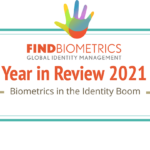 South Korea’s independent human rights agency has weighed in on a newly proposed law that would allow government authorities to collect the fingerprints of children aged four and under without parental consent, deeming it unconstitutional.
South Korea’s independent human rights agency has weighed in on a newly proposed law that would allow government authorities to collect the fingerprints of children aged four and under without parental consent, deeming it unconstitutional.
As The Korea Times reports, the law was drafted with the aim of helping police to track down missing children. The National Police Agency is currently only able to collect the fingerprints of kids under 18 with parental consent.
But the National Human Rights Commission has assessed the legislation and determined that biometric information “requires greater attention to prevent mishandling, which could lead to grave human rights violations.” The Commission added that “the benefits of implementation do not outweigh the need to protect individual privacy.”
It’s another instance of a societal tension that is popping up all over the world as biometric technology, and government authorities’ use of it, becomes increasingly pervasive: Rights groups in the UK, for example, recently called on government and police agencies to halt their use of facial recognition in public spaces, and Amazon has come under heavy criticism for providing such technology to police in the US. Fingerprint recognition, perhaps because of its longstanding use in criminal identification, tends to be less controversial, but clearly it, too, can be deemed excessive when applied to children.
Source: The Korea Times
–
June 21, 2018 – by Alex Perala







Follow Us